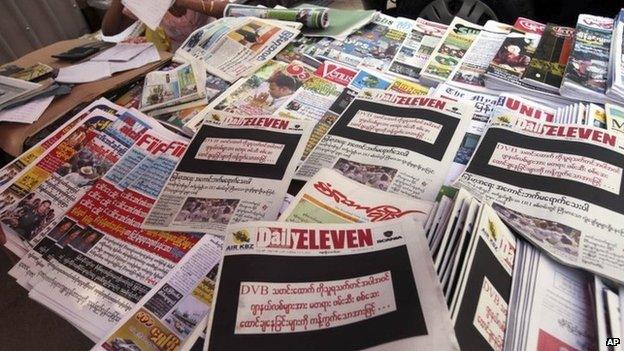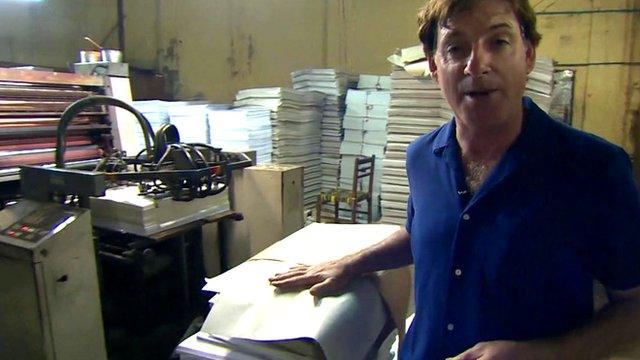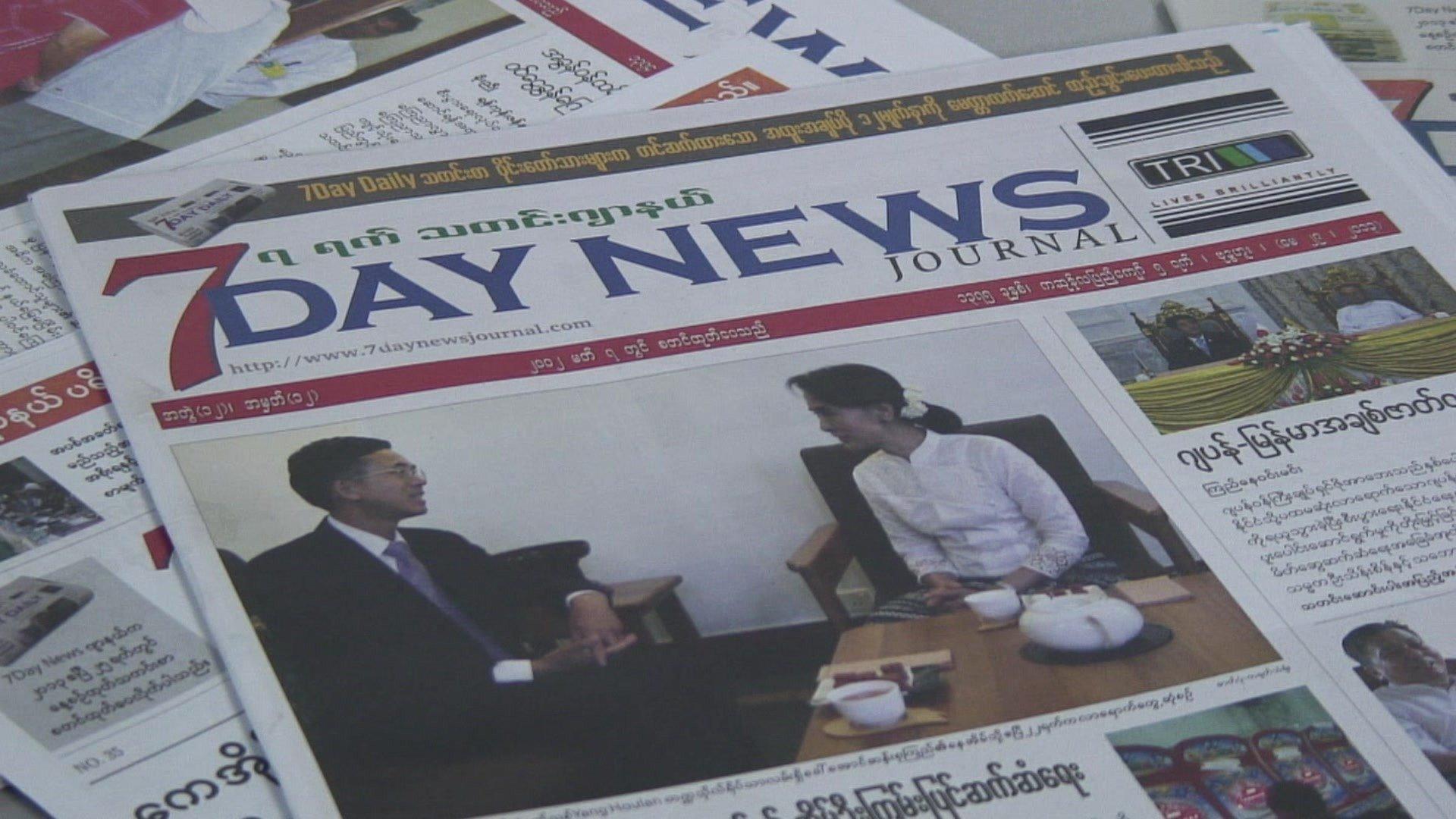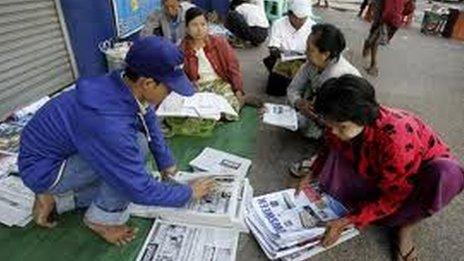Myanmar newspapers go black to protest over jailed journalist
- Published

Burma is currently 145th out of 180 countries in the 2014 Reporters Without Borders press freedom index
Several newspapers in Myanmar have printed black front pages to protest against recent arrests and jail terms handed out to journalists.
The protest comes after a court on Monday jailed a journalist for a year over charges that included "disturbing a public servant" and trespass.
Local journalists and rights groups have called for Zaw Pe's release.
Media in the country, also known as Burma, was heavily censored by the government until recently.
Democratic Voice of Burma video journalist Zaw Pe, 41, is planning to appeal against his conviction, reports say.
According to the Democratic Voice of Burma, he had visited the department of education in Magwe District to do an interview about a Japanese-funded scholarship programme
The paper ran a black cover with the message: "Journalism is not a crime." The protest was repeated across major daily newspapers, BBC Monitoring reports.
Several journalists have been arrested or jailed on various charges in the last four months, reports add.
The black newspaper pages became a topic of discussion among readers in the cities of Mandalay and Yangon, also known as Rangoon, a BBC correspondent says.
In Mandalay, more than a dozen journalists also distributed leaflets to protest against Zaw Pe's case.
A reporter from the Democratic Voice of Burma, Kyaw Zay, told the BBC that journalists were still being harassed despite authorities promising more transparency and freedom.
Harsh restrictions
Myanmar has been undergoing a series of democratic reforms since a nominally civilian government came into power in 2011, replacing decades of military rule.
Since then, direct government censorship of the media has been abolished and privately-owned newspapers were allowed to operate for the first time in decades.
But correspondents say that journalists in the country still face some of the harshest restrictions in the world.
Reporters Without Borders ranks Myanmar 145 out of 180 countries in its 2014 press freedom index.
In a statement issued on Thursday, external, the group's Asia-Pacific head, Benjamin Ismail, said the impact of Zaw Pe's sentence on freedom of information was worrying.
"It is unacceptable that local officials can obstruct a journalist's work and have him sentenced to imprisonment just because they feel he disturbed them," he said.
"We call on the local authorities to release Zaw Pe and we ask the government to ensure that media freedom is respected equally everywhere, without differences between Rangoon and the rest of the country."
- Published1 April 2013

- Published4 September 2013

- Published24 July 2012
